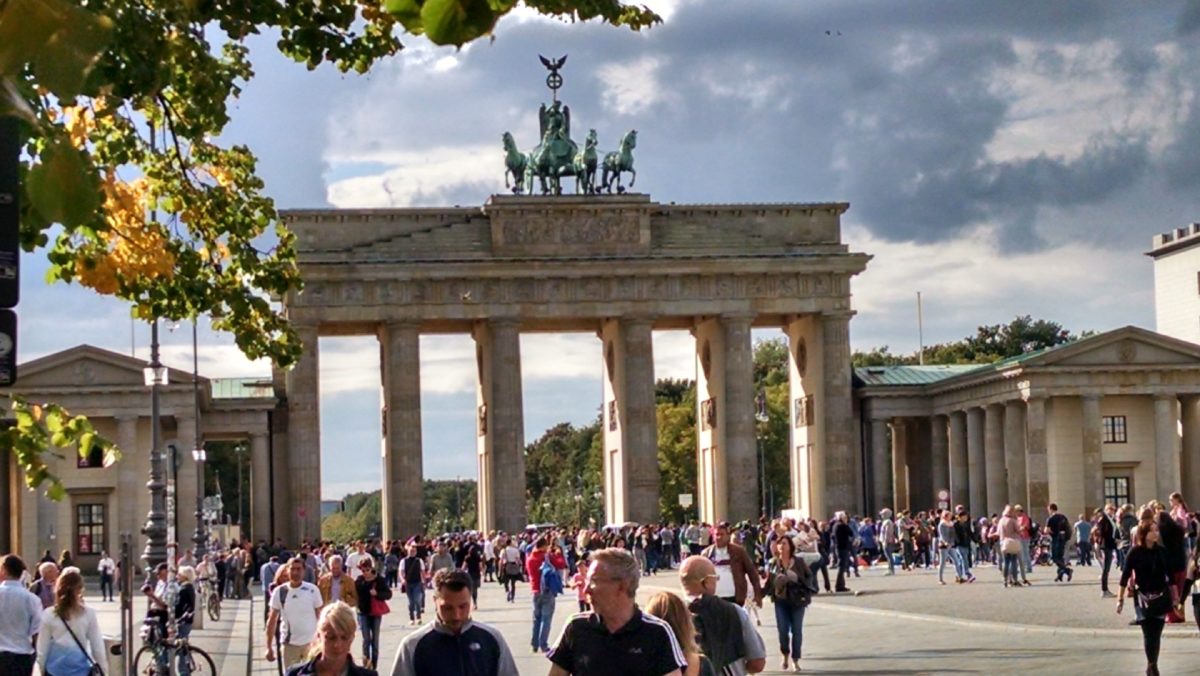
Travelers visiting German-speaking countries can learn and practice 11+ essential German words and phrases here. We’ve posted the first 11.
Listen.
Record yourself.
Play back and compare.
(See more “Learn and Practice Tips” below)
11 Essential German Phrases
Ja – Yes (ja and yes start with the same sound)
Nein – No (sounds close to “nine”)
Danke – Thanks (the -e ending has an eh sound)
Ja bitte – Yes, please
Bitte schön – You’re welcome (for ö – say “ay” but round your lips)
Entschuldigung – Excuse me. (“u” as in “push”)
Guten Morgen – Good morning
Guten Tag – Hello (literally good day)
Guten Abend – Good evening
Gute Nacht – Good night (“ch” as in Scottish “loch”)
Auf Wiedersehen – Goodbye (till we see each other again)
Record and Playback German Phrases
Learn and Practice Tips
- Click the black arrow to hear the German speaker.
- Click the red dot once to record yourself.
- Click the black square to stop recording.
- When you click the black arrow again, you’ll hear the speaker and then yourself.
- Do it several times until you sound like the German speaker.
- Then “Choose a Study Mode” and test yourself with one of the Quizlet games! (You may need to adjust your Options with top right icon
 .)
.)
Why learn these German Phrases?
Let’s say, you’ve ordered your first meal in a restaurant in Munich or Vienna. As the waitress serves you, you simply say “Danke”.
Even if the waitress knows that you don’t speak German, your effort may make her smile.
And beyond “Please” and “Thank you”, basic greetings really are the staple of first words you should know in any country you visit.
When you enter a shop, you’ll often often hear “Guten Morgen”, the shortened form “Morgen”, or “Guten Tag”. And when people leave, they often say “Auf Wiedersehen”.
More Pronunciation Tips
While most German sounds are familiar to English speakers, there are a few that are different.
English does not have the German “umlauts”, the letters ä, ö, and ü.
However, the German “ä” sound is similar to the “a” and “ai” sounds (as in “fare” and “fair”).
To get to “ö”, say “ay” (as in “may”), but round your lips.
To get to “ü”, say “e” (as in “be”), but round your lips.
The German “ch” sound does not exist in English. Still, the Scottish “Loch” (as in “Loch Ness”) gets pretty close to the German pronunciation.
On our gamesforlanguage.com site we have a German Quick Game to Practice “ch”.
Note that the German “l” in “Entschuldigung” is pronounced towards the front of the mouth.
In “Wiedersehen” you’ll hear that the German “w” more like an English “v” sound, plus the “r” is not guttural, but is produced towards the front of the mouth.
But don’t worry too much about these differences: Just listen and try to imitate the German speaker above as well as you can. Learning new sounds takes some practice. But if you approach it playfully, it can actually be a lot of fun.
Outside the big cities
While there will be many opportunities to use basic greetings in German-speaking cities, knowing them when you’re outside of a city is even more important.
Being a visitor in a German-speaking country will make you welcome, when you make the effort to greet people in German.
The above basic greetings work also in countries like Austria and Switzerland, although there are many regional variations, even in Germany.
For example, in Bavaria and Austria, you might hear “Grüß Gott”, “Gruetzi” in Switzerland, and “Moin” in northern Germany, instead of “Guten Tag”.
Sometimes it’s best to just echo what you hear.
The next 12 Phrases
Once you have mastered some of the basic words, polite phrases and greetings, it’s time to learn asking some “where…?” questions.
Even with GPS enabled smart phones, you’ll often want to know where the bathroom is or the next ATM, information those phones still don’t have!
The next 12 German phrases you’ll find in German 2 For Travel.